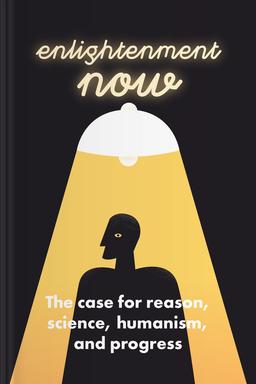What is Guns, Germs, and Steel about?
This acclaimed work explores the factors that shaped the modern world, examining how geographic and environmental variables influenced the development of civilizations. Through a multidisciplinary lens, it addresses the rise of technology, the spread of diseases, and the impact of agriculture. By uncovering the roots of inequality among societies, it challenges traditional narratives about race and culture, offering a profound understanding of human history and its complexities.
Who should read Guns, Germs, and Steel
- History enthusiasts seeking insights into societal development.
- Students studying geography and anthropology in academia.
- Readers interested in the impact of environment on civilizations.
What is Enlightenment Now about?
This thought-provoking book argues for the importance of reason, science, and humanism in driving societal progress. Drawing on data and historical trends, it illustrates how advancements in technology, health, and governance have improved human life. Challenging pessimistic views, it advocates for a rational approach to addressing global challenges, emphasizing that through knowledge and Enlightenment principles, humanity can continue to achieve positive change and overcome obstacles.
Who should read Enlightenment Now
- Fans of science and reason-based arguments
- Advocates of humanism and progress
- Readers interested in rational optimism and critical thinking
What is Factfulness about?
This insightful book challenges common misconceptions about global trends, revealing how the world is improving in numerous ways. Through engaging data and compelling anecdotes, it explores ten biases that distort our understanding of reality, urging readers to adopt a fact-based worldview. By highlighting progress in health, poverty, and education, it inspires optimism and encourages a clearer perspective on global issues.
Who should read Factfulness
- Data enthusiasts seeking a more accurate worldview.
- Students and educators needing facts over misconceptions.
- Anyone wanting a positive perspective on global progress.


